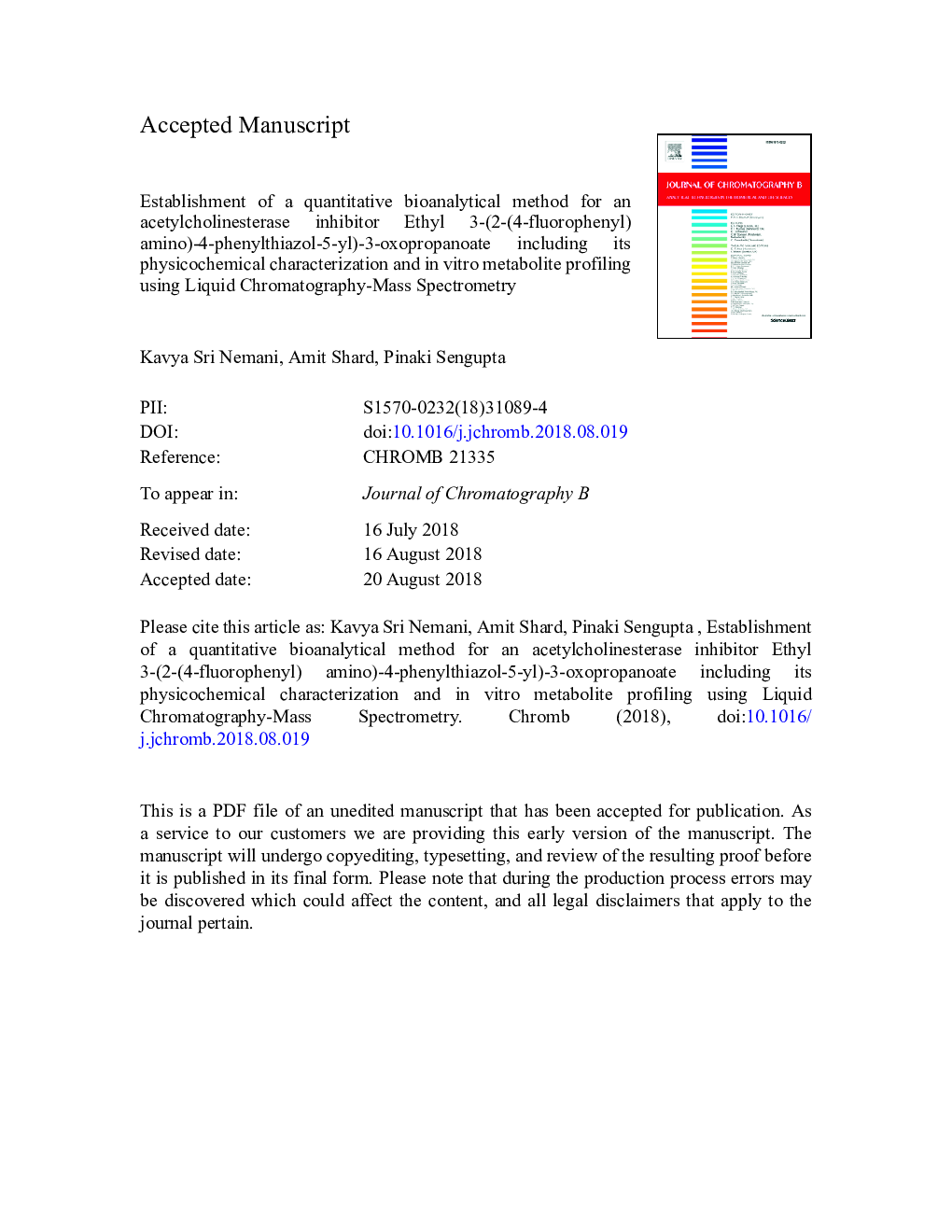| Article ID | Journal | Published Year | Pages | File Type |
|---|---|---|---|---|
| 10127912 | Journal of Chromatography B | 2018 | 30 Pages |
Abstract
Ethyl 3-(2-(4-fluorophenyl)amino)-4-phenylthiazo)-5-yl)-3-oxopropanoate is a novel molecule with potent acetylcholinesterase inhibition property. In this research, we have developed a rapid and selective RP-HPLC bioanalytical method for quantitative measurement of the molecule. The method has been validated following the USFDA bioanalytical method validation guideline. In addition, as a part of drug development, in vitro metabolite identification has also been performed. A Kromasil C18 column was used in eluting the molecule chromatographically. The optimized mobile phase was composed of a mixture of acetonitrile and 10â¯mM ammonium formate buffer (pHâ¯4.6) in 70:30 ratio (v/v). The response of the molecule was found to be linear over a calibration range of 0.2â¯Î¼g/mL to 12â¯Î¼g/mL. The inter-day and intra-day accuracy of the method ranged from 89.95% to 101.90% and 99.84% to 104.08%, respectively. On the other hand, the precision (%CV) value for inter-day was in between 3.50% to 6.91% and for intra-day, it was 2.11% to 8.03%. The mean recovery of the molecule at three different quality control levels was more than 85%. The analyte was stable under different stability conditions including 12â¯h autosampler, 8â¯h bench top, 15â¯days long term at â20â¯Â°C and three freeze-thaw cycles. The method was applied to determine stability of the molecule in human plasma. The molecule was found to be stable with more than 90% remaining even after 120â¯min of incubation in plasma. Two metabolites each in rat liver microsome and human liver microsome has been identified.
Related Topics
Physical Sciences and Engineering
Chemistry
Analytical Chemistry
Authors
Kavya Sri Nemani, Amit Shard, Pinaki Sengupta,
